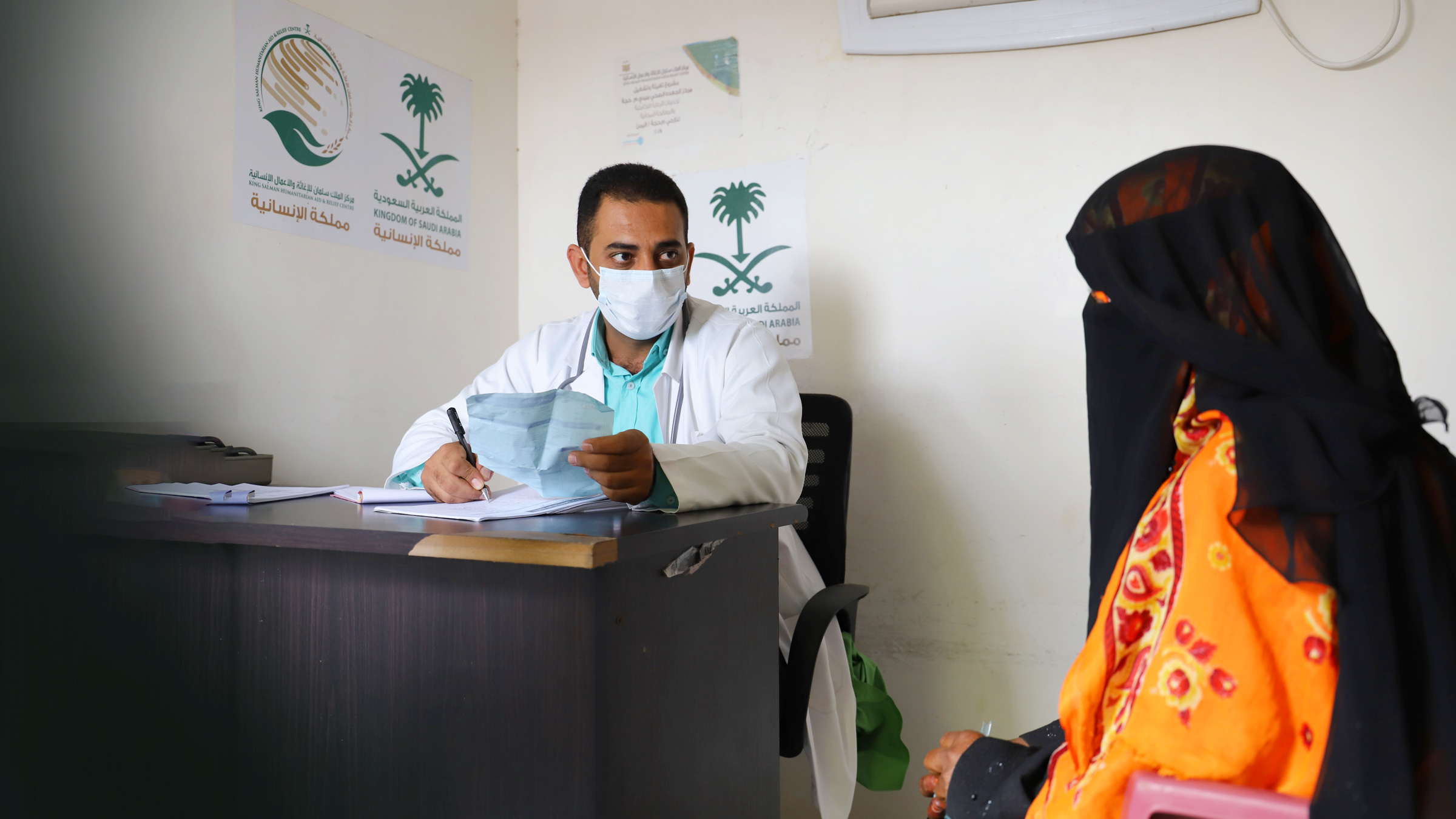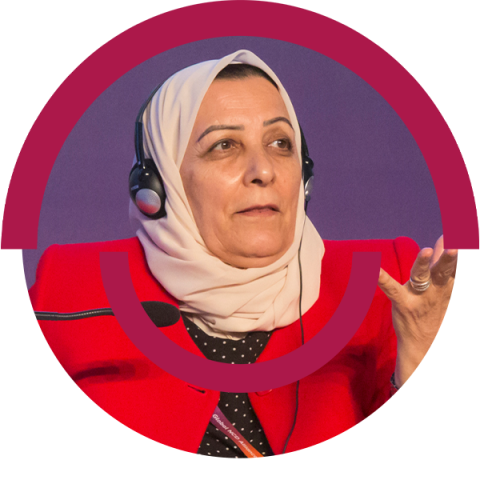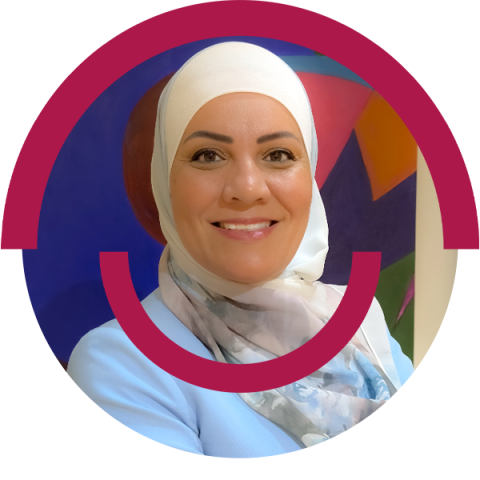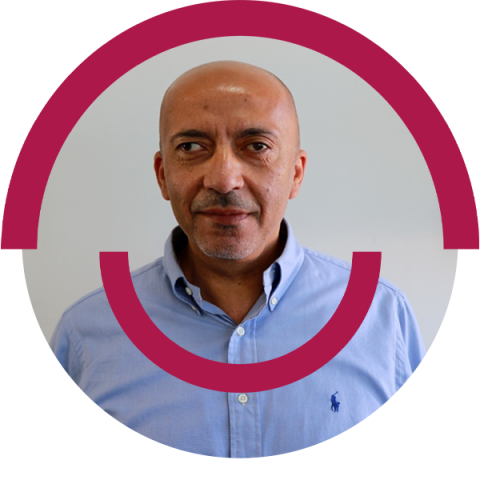The World Health Organization’s (WHO) Eastern Mediterranean Region (EMR) is facing an unprecedented scale of emergencies, with over 76 million individuals directly or indirectly affected by political conflict, environmental threats, and natural disasters. Over half of countries are affected by political crises, with most of these being chronic and protracted in nature, such as those in Palestine, Somalia, Afghanistan, Yemen, Syria, Libya, Sudan, and Iraq.
Among the numerous health challenges that arise during these crises, the management of noncommunicable diseases (NCDs) such as diabetes, hypertension, heart disease, cancer, renal disease, and chronic respiratory disorders, poses a significant burden. One of the primary challenges in managing NCDs during humanitarian crises is the disruption of healthcare services. In Syria, for example, ongoing conflict has devastated the healthcare infrastructure, leaving millions without access to essential medications and regular medical consultations. The chronic nature of NCDs requires continuous care, which is often interrupted during crises, exacerbating health outcomes for patients.
Another significant challenge is the limited capacity for self-care and health literacy among affected populations. Many individuals are unaware of the importance of routine medication, dietary needs, and exercise, as well as the risks associated with tobacco use. This gap in knowledge can lead to poor disease management and increased complications.
The recent High-Level Technical Meeting on NCDs in Humanitarian Crises, 26-28 February in Copenhagen, Denmark, emphasised the importance of robust leadership to prioritise NCD care within humanitarian responses, particularly in countries with protracted crises. The meeting called for a multistakeholder approach that engages the community as well as affected individuals. This recognition is crucial for people living with NCDs in the region, who face inadequate NCD healthcare and services and experience significant challenges in obtaining timely diagnosis, treatment, and care in both affected and host countries.
Closing the NCD leadership gap
Experiences in the EMR highlight the urgent need of investing in local leadership for effective crisis management. Strong leadership is essential for coordinating efforts among diverse stakeholders, optimising resource allocation, and ensuring that NCD care is integrated into emergency health responses. Leaders must grasp the burden of NCDs in crisis settings and commit to integrating NCD care into emergency health strategies. This requires not only knowledge and expertise but also the ability to mobilise resources and inspire collective action.
Referring to examples from the region:
In Lebanon, The Children’s Cancer Center of Lebanon continued with its education programme raising awareness on symptoms, diagnoses, and the importance of early detection and prevention of HPV infection to schools, professionals, community leaders, decision-makers and other stakeholders. It further contributes to the global goal of reducing unnecessary mortality of children by providing coverage for the treatment of 500 children with cancer in Lebanon annually, with zero tolerance for any sort of discrimination.
An excellent case study of building local leadership capacity is the Lebanese National Cancer Plan of July 2023. This strategic response addresses the ongoing healthcare crisis in Lebanon, exacerbated by political instability, economic challenges, and the aftermath of the 2020 Beirut explosion. It aims to strengthen the country’s healthcare system, particularly cancer care, by enhancing local leadership and fostering collaboration among various stakeholders, including government agencies, non-governmental organisations (NGOs), and international partners.
Community engagement includes local leaders
The plan emphasises the need for strong leadership to coordinate efforts, optimise resource allocation, and ensure that cancer patients receive timely and adequate care despite challenging circumstances. It also highlights the importance of community engagement and the role of local leaders in mobilising resources, advocating for changes, implementing policies and laws, and supporting affected individuals.
The King Hussein Cancer Foundation (KHCF) treats 70% of cancer patients in Jordan and thousands of cancer patients from the region annually, with a focus on refugees and displaced people. It bridges the gap in cancer care by ensuring continuous access to quality cancer treatment, regardless of the political situation in the region. Through vigorous fundraising, particularly the Goodwill Funds programme, KHCF ensures equitable access to quality cancer treatment. Since 2003, Goodwill Funds have supported 29,898 underprivileged patients with comprehensive treatment costs, including transportation, accommodation, and food coupons, particularly refugees and displaced people from Yemen, Iraq, Gaza, Syria, and other areas.
Working with other cancer organisations in the region, KHCF safeguarded the rights of cancer patients to care—including in Lebanon—by providing humanitarian aid in the form of urgently needed medication, which guarantees undisrupted treatment.
Given the current economic situation in Jordan and competing priorities for limited resources, KHCF has introduced an innovative, social, sustainable cancer coverage solution through the Cancer Care Insurance Programme. This programme, which includes a premium payment by users, aims to bridge coverage gaps and is based on the principles of solidarity and justice as prerequisites on our path towards the attainment of cancer care coverage and Universal Health Coverage (UHC). Today, voices are advocating for the initiative to be adopted as a national cancer insurance programme in Jordan.
Coordination is key
In Syria, the prolonged conflict has significantly disrupted the healthcare system. Leadership from local NGOs, working in coordination with local health authorities and the WHO to ensure the delivery of essential medicines and medical supplies to severely affected areas, has helped to ensure regular and sustainable care for people living with NCDs. Community engagement initiatives have raised awareness about NCDs and encouraged individuals to seek care despite challenging circumstances. Effective coordination among various humanitarian agencies and stakeholders has been pivotal to optimising resources for NCD management.
Community engagement is a vital component of effective crisis and emergency response. Given the limited capacity for self-care and lack of health literacy among affected people in humanitarian crises in most low- and mid-income countries in the region, coupled with the chronic nature of diseases like diabetes and cardiovascular diseases, which require long-term care, it is essential for patients to understand their conditions and treatments. This includes the need for daily medication, routine dietary and exercise regimens, avoidance of risk factors such as tobacco use, and timely identification of complications. Local NGOs are well-positioned to engage patients and communities, providing training and health awareness.
In Yemen, which has been experiencing one of the world’s worst humanitarian crises due to prolonged conflict, humanitarian agencies in partnership with local NGOs have been working on the ground to empower local populations to take an active role in their health and well-being. This approach builds trust between health providers and communities and enhances the overall resilience of health systems. These initiatives have included training community health volunteers to deliver essential services, such as vaccination campaigns and basic medical care. These volunteers play a vital role in educating communities about health issues, promoting preventive measures, and ensuring that health services are culturally appropriate and accessible.
In Jordan the KHCF combats NCDs through social behaviour change communication and community mobilisation. It established the Jordan X Cancer programme, engaging the whole community (youth, patients, volunteers, schools and universities, as well as the private and public sectors) in promoting healthy lifestyles, fighting modifiable risk factors for NCDs, and empowering well‑being.








